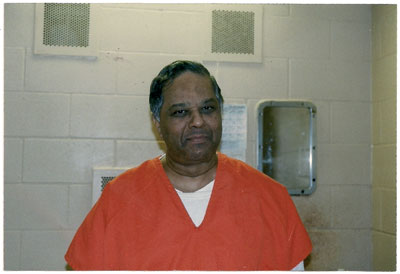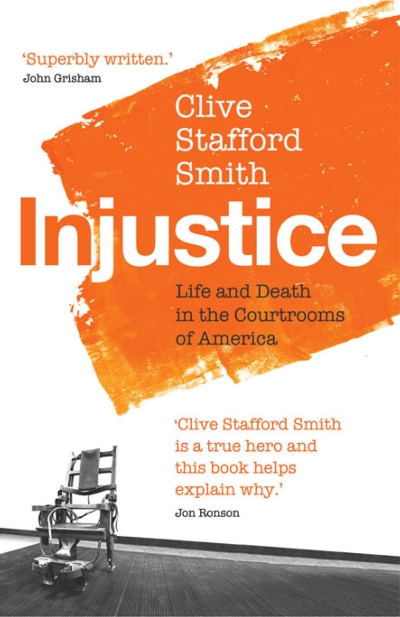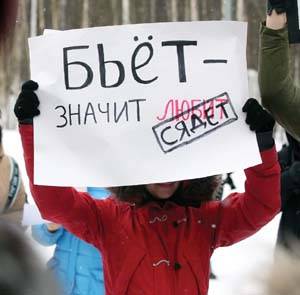-I1.jpg)
But this is a thriller with a difference. At the end of the book the world is not restored through the triumph of our hero, the murderer remains at large, the bad guys go unpunished. The wrong guy remains on death row. And it is not a work of fiction; everything in it is true, including Howie “The Mouse”. Injustice is not a new sideline for a jaundiced lawyer with an eye on Hollywood; it has not been written as entertainment or even as a moral lesson. It is the next phase in the legal defence of Krishna (Kris) Maharaj, the British businessman who was convicted of the murders of Derrick Moo Young and his son Duane in room 1215 of the DuPont Plaza Hotel in Miami in 1986, and is currently in his 25th year awaiting execution on death row.
“The only reason I did this book,” Stafford Smith tells me when we meet in the London offices of Reprieve, the non-profit he founded in order to offer free investigation and representation to those facing the death penalty, “is because I have failed Kris in every court in America and I’ve failed him on clemency, so now I’ve got to go to the court of public opinion.” The case has gone so far in the US courts that Stafford Smith has been told, incredibly, that the innocence of his client is no longer relevant. He hopes that his book will help flush out more evidence and force the US courts to reopen the case before it is too late for Kris, who is now 73 and in failing health.
I’m lucky to find him in London. Reprieve operates offices on three continents, and Stafford Smith, though he doesn’t look it, has been to all of them in the past ten days. His recent itinerary gives a good sense of the range of Reprieve’s concerns, and the dedication with which its founder pursues them. First he was at Guantanamo, visiting several prisoners he is representing, then in Washington for a summit on the use of unmanned drones by the US in Pakistan and Afghanistan, followed by a “meeting on Bagram” and a visit to the FBI to talk witness protection; then on to New York to talk to documentary maker Alex Gibney about a film project. After three days snatched at home in the UK with his 3-year-old son Wilf, it was off to Pakistan, where he spent time searching for a witness in the vibrant markets of Peshawar. Since it’s on the border with Afghanistan I float the cliché that it’s like the Wild West. “Not at all,” he replies. “I was the only Westerner around but … well, I’ve been held up at gunpoint three times in New Orleans, but I didn’t feel that kind of threat there at all.”
Stafford Smith grew up in the racing town of Newmarket in Suffolk, attended posh Radley School and was all set to study sciences at Cambridge when his growing obsession with the death penalty, spiced with the arrogance of youth which made him believe could actually make a difference, set him on a different path. He took up a grant to study at the University of North Carolina instead, volunteered in liberal law firms that opposed state execution, completed a law degree at Columbia and soon fetched up at the impoverished but dedicated Southern Prisoners Defence Committee in Atlanta, Georgia. In 1993 he set up the Louisiana Crisis Assistance Center in New Orleans. He returned to the UK in 2004 to work full time as legal director for Reprieve.
At the core of his life’s work – which he describes in Injustice without apology as “a mission” – is the simple proposition that state-sanctioned execution is barbaric and immoral. “One day,” he says, “we will view our attitude to criminal law the same way we look back on burning witches. There is no question that the death penalty will not go down as our finest hour. But it will pass.” Allied to this moral certainty is a political analysis which one can hardly imagine being greeted with unalloyed enthusiasm in the courtrooms of the Deep South. He captures it in a slogan: “Capital punishment means those without the capital get the punishment.”
While many of the people he has represented are, like Kris Maharaj, extremely likely to be innocent, this is not always the case. Some of his clients are self-confessed murderers, unarguably guilty of some of the crimes for which they were convicted. Doesn’t he think, given what he has seen, that some people are just evil, and, perhaps, deserve their punishment? “I have met a lot of people who have done bad things, but in every case the worse the crime the more obvious the explanation. That’s always true, when you start looking into it. But people don’t want to look into it. They hide behind the word ‘evil’, which is just a completely pointless word.”
He talks with enthusiasm and energy, but I wonder, given the terrible things he must have seen, and the fact that he knows for sure that innocent people have been put to death, and many more sit on death row, how he maintains his energy, his hope. “That’s the wrong question,” he fires back. “Ninety-eight per cent of my clients win their cases, and because of our efforts well over 300 people have got their lives back. We also get to tell people like George Bush that they can’t just do whatever they want to people in Guantanamo. That’s just great fun.”
He certainly seems to relish detailing the inherent flaws of the American legal system in Injustice, which as well as providing a gripping read serves as a vital primer on the shortcomings of the legal process. Take his skewering of forensic science, which is both learned and scabrous. If you are a fan of TV lab procedurals like CSI or Silent Witness look away now: forensic science, Injustice argues, is worse than useless. How so?
“Well, take forensic hair analysis – we’ve all seen technicians in lab coats squinting at strands of hair under the microscope, but it has no scientific validity at all. It’s drivel. There is no single credible study that validates this technique. I found one Canadian study that tried to. I asked the author for his data, but when he found out I was a defence lawyer he would not let me see it. So I took his published figures, such as they were, and found he’d made all kinds of assumptions that are not applicable in the real world; like the probability of a false match, which he had as one in 3,000. If you change the assumptions to more realistic ones the probability comes out as one in two, 50/50. And this is evidence that has sent hundreds of thousands of people to prison and is used all across America.”

But doesn’t DNA therefore provide a more reliable scientific tool? Sorry, but no. “It’s true that DNA testing is a real science, unlike hair analysis, and in laboratory settings it is very reliable,” explains Stafford Smith. “But there are two big problems: first, instead of doing it in a pristine lab you are doing it in a grubby crime scene. The second, and much bigger, problem is that the people who are doing it are basically morons. Obviously I’m overstating, but not by much. People who become forensic technicians in a crime lab are just not the sharpest knives in the drawer. So if the odds of getting a false match scientifically are one in 10 million, but the odds of the nitwit in the lab mixing up the samples are one in ten, then the scientific odds are irrelevant. I can only say this – I’ve had three cases with DNA evidence presented at trial, and I know for a fact that each one had it wrong.”
For example? “There’s one in the book – a case about cigarettes in a car ashtray. My client admitted murder, but says he did not rape the victim first, that sex was consensual. This matters because a capital conviction required a prior rape. My client said that he thought that the victim had had a cigarette – you can imagine how that might conjure up the image for the jurors of the post-coital cigarette. So I had DNA tests done on the cigarette. We send them off to the State lab, and they came back and said the DNA was not hers, and not his, that it belonged to an unknown Mr X. I knew there was no Mr X, they just made a mistake, and they do it all the time.” This fallibility, combined with the fact that in the overwhelming majority of cases DNA is not relevant – in the 171 capital cases Reprieve handled over a three-year period DNA was relevant in none – fatally undermines the idea that DNA provides a silver bullet.
Faulty or misused forensic science is just one of the ways in which the American legal system is stacked against justice, according to Stafford Smith. His book also spends time adumbrating the many others, like the self-selecting nature of the law enforcement and prosecution officers, which attracts recruits only among those who believe in punishment and execution, and are inclined to believe that a conviction is correct no matter what the evidence and that criminals always lie. This, in the American context, is exacerbated by the fact that local police chiefs, prosecutors and judges are elected. As Stafford Smith wryly points out, “No one ever ran on the platform of ‘I’m going to do the right thing by criminals.’” Instead, aspirants fall over themselves to prove who will be the toughest on crime, who will fry the most murderers.
In Injustice this acute and convincing criticism of US justice is cleverly woven into a twisty international plot, which takes Stafford Smith, or his gumshoe associates, from Miami to Kingston to Medellin. It leaves the reader in no doubt that Stafford Smith will not give up on the case, any more than will Marita, Kris’s wife, who has stuck by him during his quarter-century incarceration, and to whom the book is dedicated. Those who are disappointed by the lack of a happy ending can take comfort instead from the fact that this is a thriller unfolding in real time, with the ending still in doubt.
 And there are glimmers of hope. Stafford Smith tells me of stunning revelations to come, as key witnesses die or the investigation opens up new leads. And he has just opened a letter from John Grisham, which contained effusive praise for the book and a cheque for $30,000 to fund the investigation. As you read this a 73-year-old innocent man still sits on Florida’s death row, not knowing if he will ever see justice, his only comfort that he has truth, and Clive Stafford Smith, on his side.
And there are glimmers of hope. Stafford Smith tells me of stunning revelations to come, as key witnesses die or the investigation opens up new leads. And he has just opened a letter from John Grisham, which contained effusive praise for the book and a cheque for $30,000 to fund the investigation. As you read this a 73-year-old innocent man still sits on Florida’s death row, not knowing if he will ever see justice, his only comfort that he has truth, and Clive Stafford Smith, on his side.
Injustice: Life and Death in the Courtrooms of America by Clive Stafford Smith is published by Harvill Secker.

